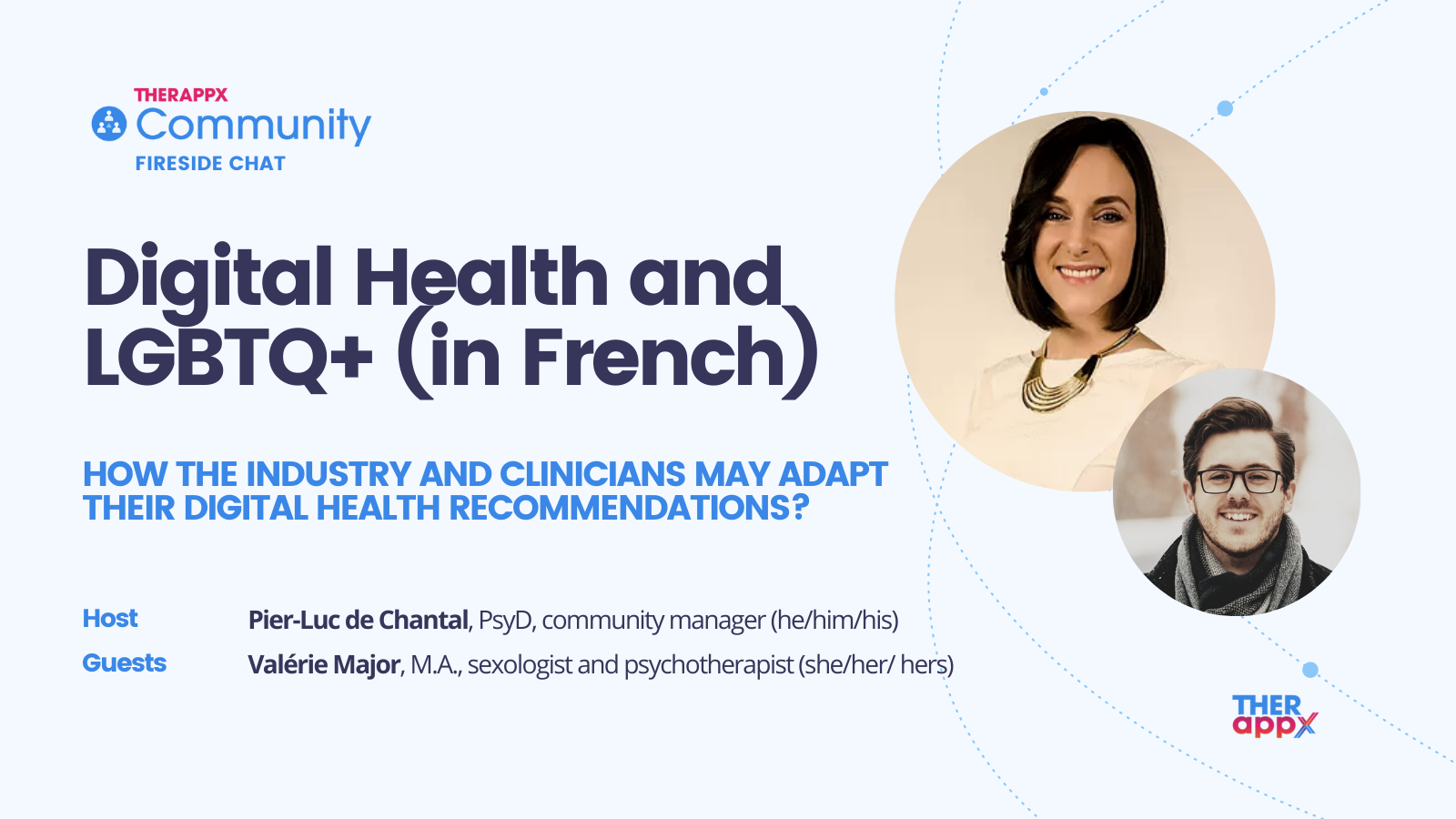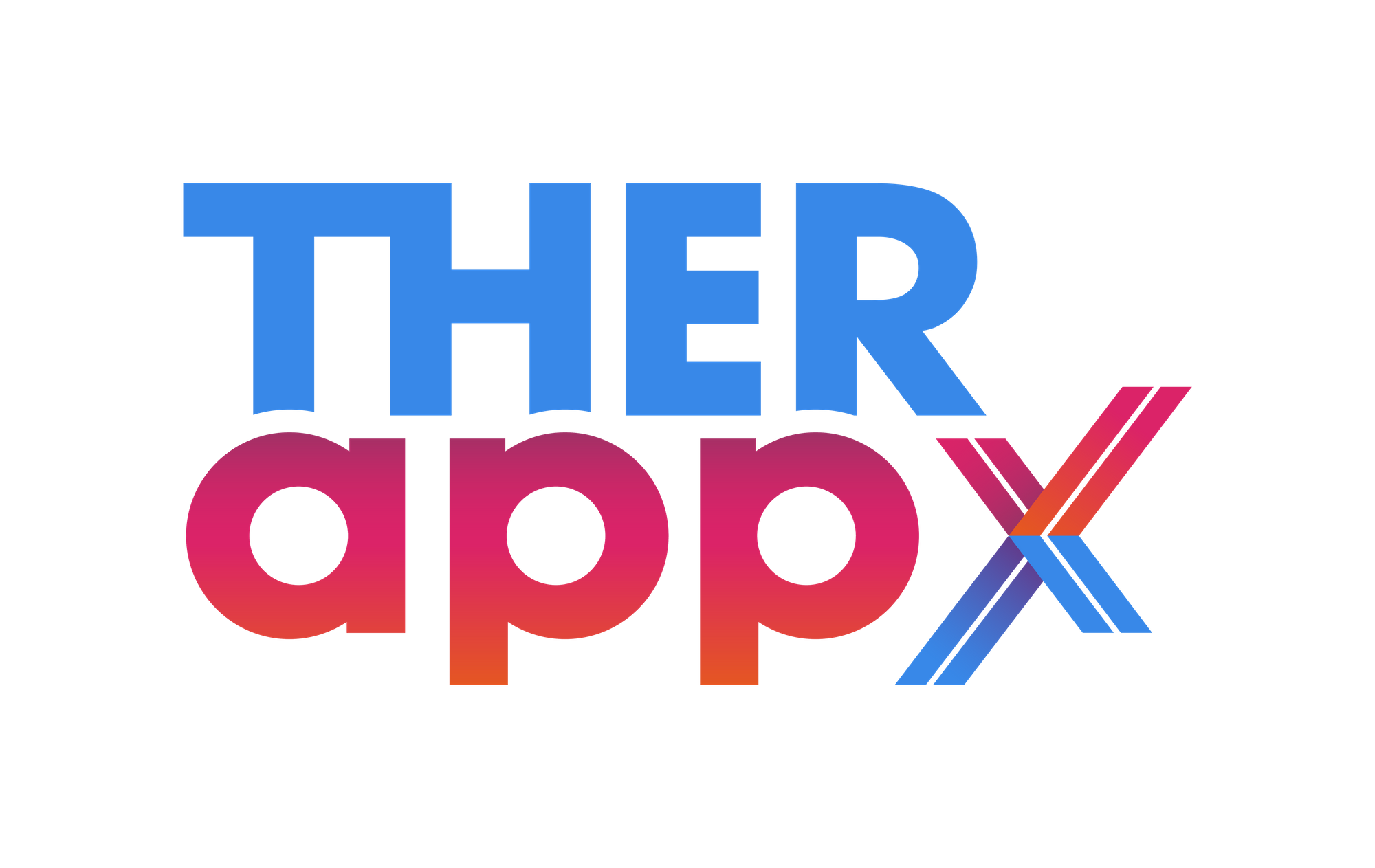The best digital tools for patients and healthcare professionals in connection with the LGBTQIA2 + community
Digital health in connection with the LGBTQIA2 + community hosted by Pier-Luc De Chantal and Valérie Major

Following the success of our blog published last week on interoperability opportunities for clinical practice, based on the fireside segment # 8, this week we wanted to similarly address the fireside segment # 7 on digital health in connection with the LGBTQIA2 + community, which took place last August.
In this segment, our colleague Pier-Luc De Chantal, psychologist, received Valérie Major, sexologist and psychotherapist specializing in the LGBTQIA2 + community. They discussed issues related to the community and the digital resources and tools available in Quebec. The key points of this fireside segment are detailed in the next lines.
To watch or review our fireside segment with Pier-Luc and Valérie, it's right here!
Meaning of the acronym LGBTQIA2 +
The acronym for the LGBTQIA2 + community is constantly evolving. This is because we now have a better understanding of sexual and gender diversity. Previously, the acronym mainly included sexual orientation and transsexuality. Since then, the acronym has evolved to also include gender diversity, different spirituality, people in the process of exploration, etc. and the + of the acronym is present to include any non-heteronormative reality. The acronym therefore now represents an increasingly large community, which explains its constant evolution.
Importance of digital tools
People from the community face discrimination and stigma, even from health professionals. It can therefore be difficult to find health professionals with whom these people feel safe, especially when they live in the regions. Certain tools can therefore be very useful by making it possible to find nearby health professionals whom people in the community will trust and even sometimes allow teleconsultation.
It can also be difficult for people in the community to find reliable resources adapted to their reality and digital health tools can help greatly at this level.
State of the digital tools available in Quebec
In Quebec, it is rather difficult to obtain up-to-date information through digital tools, to find a tool that meets a specific need and to find a tool that could meet the needs of the entire community. It would be relevant for a Quebec platform to be created to bring together all the available tools, so that patients and health professionals do not have to do their own extensive individual research.
There are still some Quebec tools that are useful for patients and health professionals, especially for finding safe resources for people in the community and for seeing the state of research.
Fortunately, we are seeing the emergence of digital tools for the LGBTQIA2 + community and that more and more existing tools are adding content intended for this community. In addition, developers are succeeding in raising more and more funding for the development of tools for this community.
Main digital health tools available in Quebec
As mentioned above, there are still some tools in Quebec that deserve to be known to patients and health professionals. Here are a few.
Rézo santé
This tool, intended for gay, bisexual, cis and trans men, brings together a "set of pathways of change in sexual and mental health as well as in general well-being" according to Valérie. The tool also offers the possibility of online chat with a member of their team and offers multiple services.
Monbuzz.ca
This is a website and app for adult men who have sexual intercourse with men. This tool provides an overview of alcohol and drug use and the possible effect of these substances on sexuality. The tool also offers help resources in the Montreal area.
Alix Interligne
It is a tool to raise awareness among people and health professionals about the different forms of violence experienced by people from the community. This is an interactive online game. Alix Interligne also provides a community helpline and an online chat.
Ressources of the LGBT Quebec coalition
The coalition offers many resources, such as inclusion guides.
Advice to developers for future tools
According to Valerie, the developers should be more inclusive. For example, developers often ask for basic information the first time a tool is used, and this information often includes the user's gender. This question could cause harm to some people and the answer to this question is often not necessary for the tool to function properly.
Developers should therefore question themselves about the information they are requesting, first whether the information is essential to the functioning of the tool and secondly whether this information could be harmful to certain people.
Developers should also educate themselves about inclusive writing, for example by reading the various inclusivity guides available on the Internet, such as the one from LES3SEX. These guides notably propose to feminize text or to use terms that do not represent any gender. For example, rather than writing ‘’man’’ or ‘’woman’’ it might be better to write "person" to avoid using any gender.
Additionally, if developers want to include case stories in their tools, they should consider including inclusive stories, which represent people from the LGBTQIA2 + community and should address the specific issues of this clientele.
There is still a long way to go for digital health to be more inclusive of people from the LGBTQIA2 + community, but with the emergence of funding and new tools, the future looks bright.
To watch or review our fireside segment with Pier-Luc and Valérie, it's right here!
